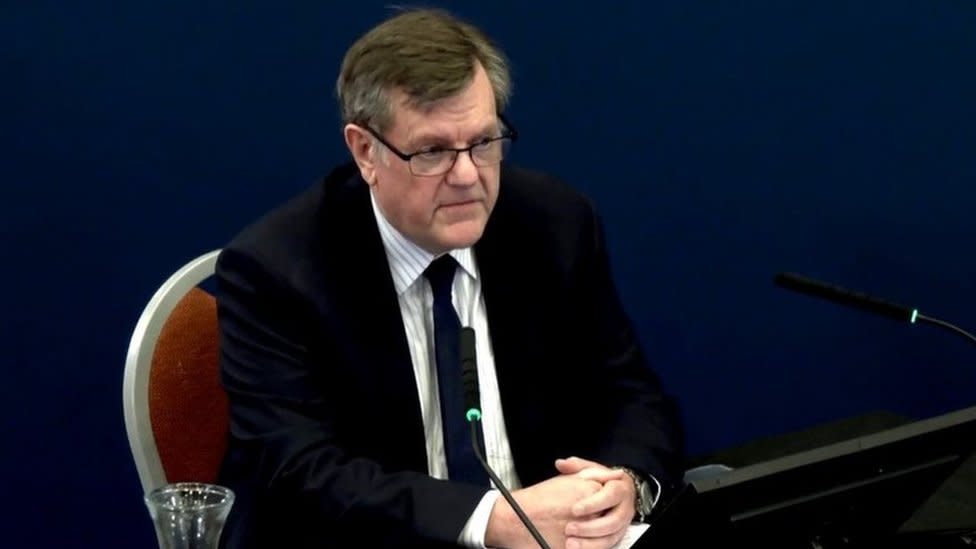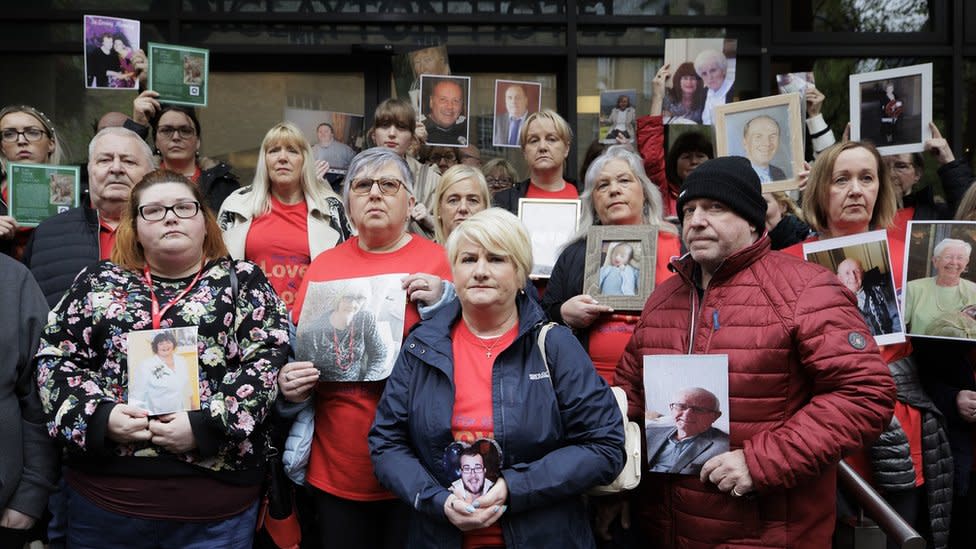Covid Inquiry: Emergency body understaffed before lockdown

A government body established to respond to national emergencies was severely understaffed just weeks before the country went into lockdown, the Covid Inquiry has heard.
The Civil Contingencies Hub was established to respond to emergencies such as weather conditions.
However it was employed to deal with a no-deal Brexit and the pandemic.
Chris Stewart, who worked for the Executive Office, gave evidence to the inquiry on Thursday.
He said that on 12 March 2020 there were four people working in the hub when there should have been at least 28.
In an email to the head of the civil service Mr Stewart said that the hub's only member of staff was "on her knees".
Mr Stewart, who acted as chief of staff for the hub, said it was understaffed due to resources and when posts fell vacant, they were not filled.
The inquiry was shown another email from Ms Bernie Rooney, in which she said at this moment "I'm a one person hub and all of the issues related to Covid-19 are moving at pace".
When probed further by the chair Baroness Hallett about the number of staff in the contingency hub, Mr Stewart said there were two in February and March.
"It is unfortunate that we hadn't given enough thought to resilience at a senior level," he said.
'Extremely hard work'
The inquiry heard that the Brexit team joined the hub on 14 March 2020 after the World Health Organisation had declared a global pandemic on 11 March.
Mr Stewart said he accepted the point that that "was very late in the day for having the sufficient planning resources".
He said he would entirely agree with Sir David Sterling's statements at the inquiry on Wednesday that "we were not as well prepared as we ought to have been".
"We ought not to have been 18 months behind in our planning for an influenza pandemic," he said.
He told the inquiry that they "got to where we got by mid-March by extremely hard work by a small and under-resourced team over a very short period".
He said that was not a "satisfactory position to be in" and said it was not a position that he would seek to defend.
"We ought not to have been in that position. We ought to have been better prepared," he said.

'Intense engagement'
Mr Stewart told the inquiry that it would have taken considerable time, effort and resources on the part of the Civil Contingencies Board and within all government departments to get to the point of being ready for a pandemic.
Mr Stewart said he agreed with Sir David Sterling's evidence on Wednesday that Northern Ireland had activated the contingency plan at the right time.
However he said that, like Sir David would also accept if at the end of the inquiry it "concluded that wasn't the case".
Regarding the introduction of regulations that were imposed in Northern Ireland, the inquiry heard that ministers only had hours to pull them together before they were "made".
Mr Stewart said it was a most "intense time of engagement" involving mainly the first minister, deputy first minister, the health minister and the Department of Justice.
In further evidence, the inquiry heard that before the pandemic outbreak there had been a considerable loss of experienced staff within the Public Health Agency.
In her evidence Dr Joanne McClean, who is the current director of Public Health, agreed the "situation had deteriorated". She said she had been a junior member of staff during the swine flu outbreak in 2009 but those with most experience had left or retired.
She said the PHA was not prepared in a number of ways but that was the case across the world because it was such an "unprecedented event".
